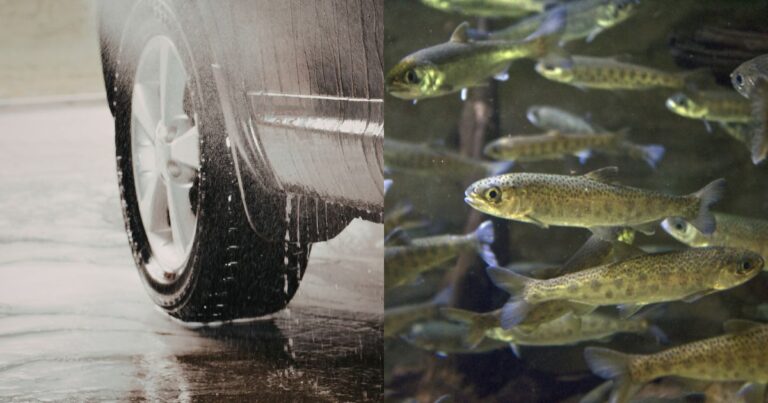Thinking back to childhood summers, I remember that almost every year my dad would buy five gallon buckets of blacktop sealant to tidy up the wear on our driveway from New England winters. Then my brothers and I would spend months running on the stuff, often barefoot. Wow, was that a bad idea.
According to a shocking report from the federal U.S. Geological Survey (USGS), “Living adjacent to coal tar sealed pavement is estimated to increase excess lifetime cancer risk 38 times, and much of the increased risk occurs during early childhood.”
These driveway sealants emit highly toxic pollutant, known as polycyclic aromatic hydrocarbons (PAHs). In layman’s terms, toxic chemicals in the black goo get released into soil, stick to our shoes, and go airborne as dust particles where they eventually make their way into us. Most exposures occur by breathing the stuff.
According to the Wisconsin Department of Public Health, most PAHs in the environment are from incomplete burning of carbon-containing materials like oil, wood, garbage or coal. They can be found in a variety of products, including mothballs, creosote wood preservatives, and even some skin creams and anti-dandruff shampoos that contain coal tars. Currently, there is no standard for how much PAHs can or should be in our homes.
Predictably, the industry denies there’s a problem and has resisted moving down a path of using safer chemicals; they’ve even questioned studies like those from the USGS, and are actively lobbying to stop cities and states from switching to safer products. USA Today reported last week that chemical companies have killed bills in Maine, Illinois, Michigan and Maryland and in several cities, such as Des Plaines, Illinois, and Springfield, Missouri.
There is a bright spot amidst sticky gunk – retailers are stepping in.
Quietly, and without much fanfare, major chains like Home Depot, Lowes, and Ace Hardware banned these products from their shelves, and stuck with safer alternatives like asphalt. Those steps have, paved the way for many cities to phase out the goop as well.
These quiet but noteworthy steps by retailers confirm what we already know: retailers are major players in the consumer marketplace and have a big opportunity to shift us towards safer chemicals. That’s exactly why we’ve launched the Mind the Store campaign, to ask the nation’s top ten retailers to get tough on toxic chemicals.
So far, we’ve sent tens of thousands of emails to the retailers asking them to create a comprehensive approach to dealing with chemicals, rather than going product by product.
What can you do? Join our Mind the Store campaign, and ask retailers to phase out our list of Hazard 100+ toxic chemicals.
Another action step is to sign a petition to urge the EPA to establish a nationwide ban on the use of coal tar sealant.




